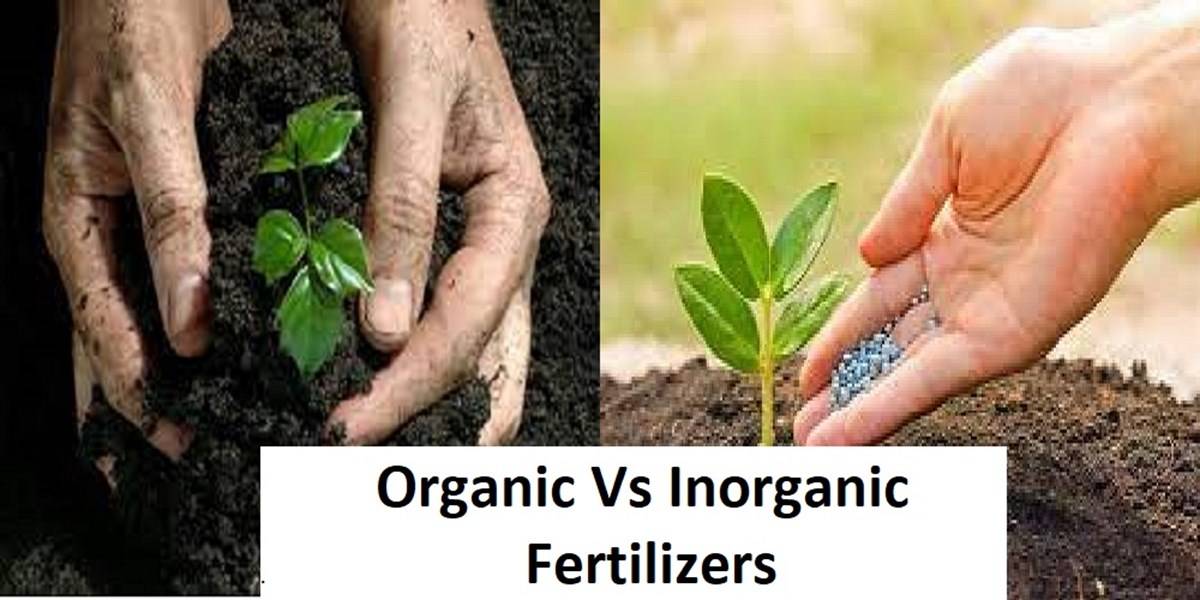
Organic and inorganic fertilizers both provide essential nutrients to the plants that they require to grow in a healthy & robust way. Each, however, includes unique components and provides these nutrients in unique ways. Organic fertilizers produce a healthy growing environment over time, whilst Inorganic fertilizers provide immediate nutrition. Which is better for your plants is primarily determined by their needs as well as your preferences in terms of cost and environmental impact.
Difference between Organic & Inorganic Fertilizers:
Below we have mentioned the cost, composition, application of organic and inorganic fertilizers;
Composition
Fertilizers provide the soil with high levels of macronutrients such as nitrogen, phosphorous, and potassium. Organic and inorganic fertilizers, on the other hand, use different components to do so. Manures, leaves, and compost are examples of organic fertilizers that comprise exclusively plant- or animal-based materials that are either a byproduct or end product of naturally occurring processes.
Inorganic fertilizer, often known as synthetic or artificial fertilizer, is made from minerals or synthetic compounds and is generated artificially. Synthetic nitrogen fertilizers, for example, are usually manufactured from petroleum or natural gas. Inorganic fertilizers frequently use earth-mined phosphorus, potassium, and other trace elements. Ammonium nitrate, ammonium sulphate, potassium chloride (potash), triple superphosphate, and magnesium sulphate are examples of balanced inorganic fertilizers that are high in all three macronutrients (Epsom salts).
Nutrient Availability:
Organic fertilizers only release nutrients when the soil is warm and moist, which usually corresponds to when your plants are most in need. They do, however, rely on soil organisms to break down organic materials, which mean nutrients are supplied more slowly than with inorganic fertilizers. Although this slow-release approach decreases the possibility of fertilizer leaching, it takes time for nutrients to reach plants. Inorganic fertilizers, on the other hand, deliver this nourishment in a plant-ready form right away. However, high nitrogen concentrations raise the risk of burning the plant, and rapid nutrient release may leack nutrients deep into the soil and water table, out of reach of plants.
Application
Without laboratory testing, the nutrients and specific constituents available from an organic fertilizer, such as manure or compost, may only be estimated. This means you're applying an ad hoc solution that may or may not fulfill the needs of your plants. Applying inorganic fertilizers, on the other hand, is straightforward because the amount of each element and the rate at which it is applied are both known.
Cost of Organic fertilizers & inorganic fertilisers
Organic fertilizers are frequently more expensive than inorganic fertilisers, but the benefits may exceed the additional cost over time. Long after the plants have taken the nutrients they require, organic fertilizers continue to enhance the soil. As a result, the longer you use organic fertilizers, the better your soil's composition and texture will be. As a result, while inorganic fertilizer is less expensive in the short term, it is more expensive in the long run.
Environmental Consequences:
Inorganic fertilizers are available to your plants right away, but they are susceptible to leaching, which occurs when nutrients are washed away below the level of plant roots by rain or irrigation water. Heavy sprays can burn your plants and increase hazardous salt levels in the soil, causing chemical imbalances. Organic fertilizer may increase nutrient concentrations, but toxicity is unlikely as long as the organic material is able to breakdown completely.
Furthermore, because organic fertilizers are created from natural sources, only a little amount of fossil fuels are utilized in the manufacturing process. This means that greenhouse gas emissions from organic fertilizer production are lower than those from inorganic fertilizer production.









